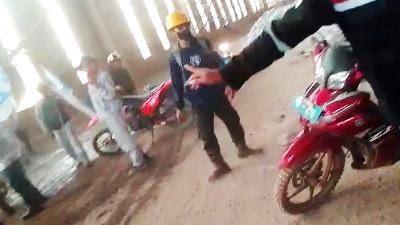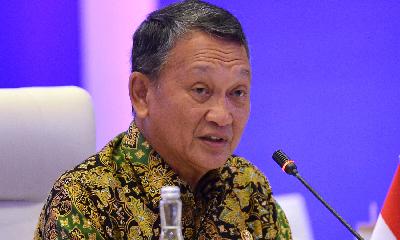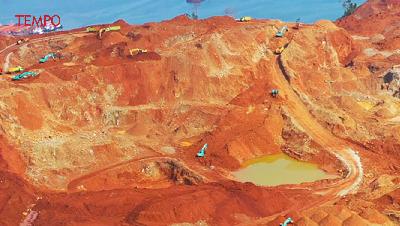A Strike Culminates in a Riot
Monday, January 23, 2023
Employees at the nickel ore smelter Gunsbuster Nickel Industry in Morowali are killed during a riot. Workers demand certain rights.
arsip tempo : 174534226326.
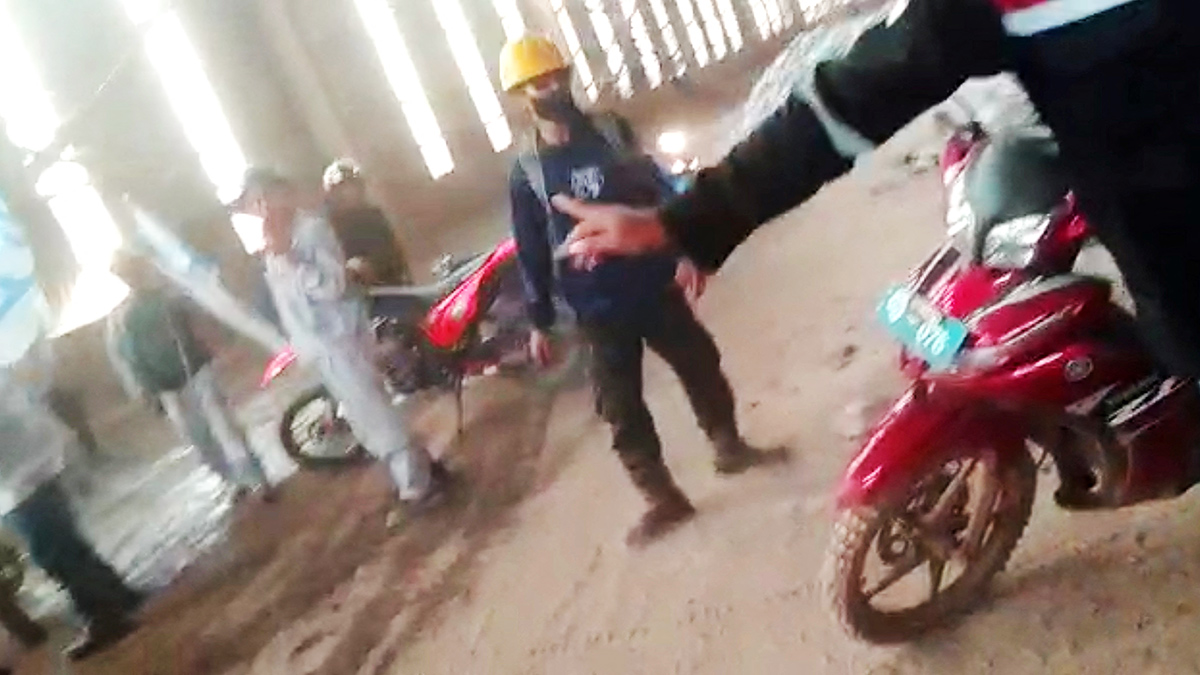
AT 6am, Amirullah and dozens of members of the National Labor Union at Gunsbuster Nickel Industry (GNI) arrived on motorcycles. They headed straight for the gate at Post 4 of the nickel ore smelter in Buntan village, North Morowali, Central Sulawesi. On that day, Saturday, January 14, they had not come to work, but to protest and demand worker rights.
Amirullah and his friends were no longer employees of GNI. The company had severed their employment contracts in July 2022. They did so because he had become the leader of the labor union and the others its members. It took half an hour for Amirullah and company to arrive at that outermost factory post.
They conveyed eight demands, one of them the company must implement workplace safety and health procedures. They also asked GNI to provide protective equipment to workers, to establish company regulations, to stop wage cuts based on vague reasons, and to end limited employment agreements for permanent working positions.
They also urged GNI to rehire labor union members who were dismissed due to a previous labor strike. Amirullah and friends also called for the installation air circulation equipment at each smelter, and the company to provide clarifications on the benefits given to the families of the late I Made Defri Hari Jonathan and Nirwana Selle.
Made and Nirwana were GNI employees who died in a massive fire caused by an explosion at the smelter on December 22, 2022. Nirwana was quite popular on TikTok. The content of that crane operator about his daily work often went viral in the video sharing application.
Smelter employees who were already at work that day could be seen wanting to take part in the protest. According to Amirullah, it was a call for worker solidarity. “As we ride the motorcycles to enter the plant we were suddenly attacked by foreign workers with steel pipes,” he said.
Three employees were wounded. Injuries included blows to the lip, crotch and forehead. Amirullah refuted the claim that union members provoked and attacked the foreign workers who were on the job. “The provocation came from inside,” he said.
Amirullah said that after the assault, things returned to normal at the factory. The police stood guard after the incident. The strike of GNI workers ended at around 5pm. However, information about local workers being beaten by foreign workers had already spread.
Some employees joined other workers after the protest. They did not accept that their friends were attacked and beaten. Rioting spread, culminating in setting fire to the employee dorm and some company vehicles. MS, a contracted worker from Parepare, South Sulawesi, age 19, died in the riot, as did one worker from China, XE, 30.
Two days after the riot at GNI, the Central Sulawesi Police Department detained 71 local workers, 17 of whom were named suspects in property damage. National Police Chief Gen. Listyo Sigit Prabowo personally got involved in the investigation.
According to Listyo, the clash was triggered by a strike and some events over industrial issues that were being negotiated at that time. “Then a video came out that looked like foreign workers committing the assault. This is what appeared to be a provocation and resulted in an attack,” said Listyo during a press conference held at the Presidential Palace in Jakarta.
The National Police chief did not provide any further context or background of the riot. According to Yanis Lakawa, Chair of the Labor Office of North Morowali, GNI had already met worker demands. The labor office has mediated a meeting between the workers and a company representative a day before the riot took place.
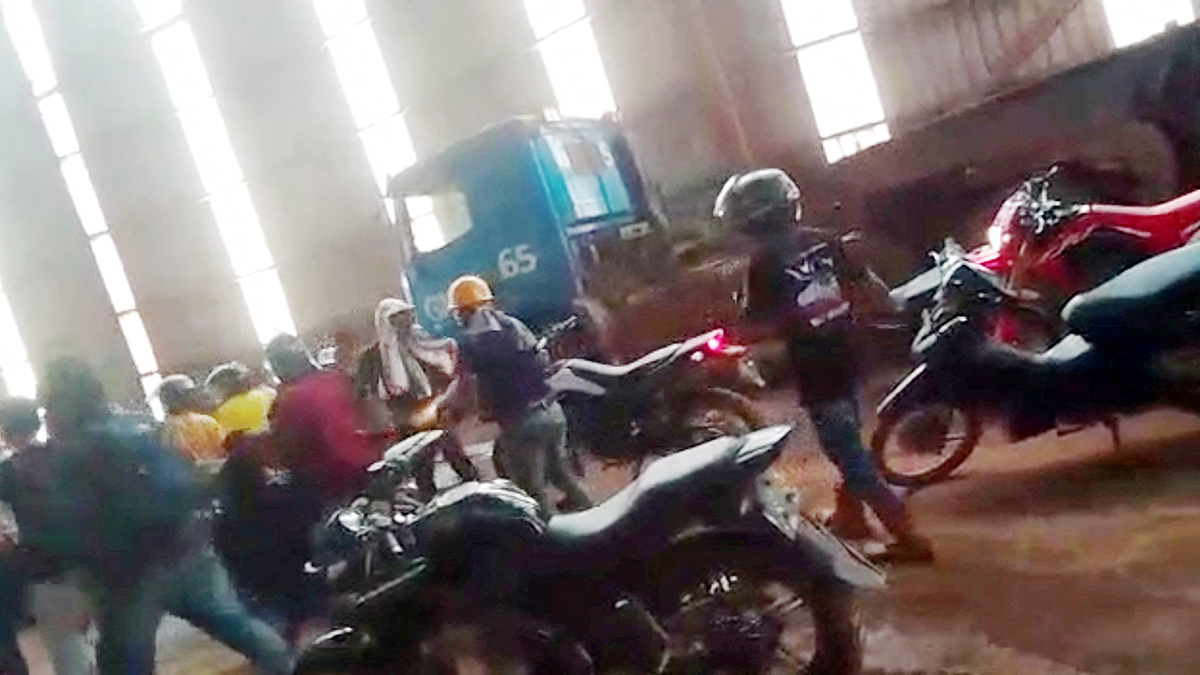
Employees react amid the chaos as Chinese and Indonesian workers clash at a nickel smelter in Morowali, Central Sulawesi, in this undated social media video released January 16. Photo: Revi Limbong via Reuters
However, said Yanis, the labor union requested that this become a joint agreement. GNI asked that their promise to meet their demands be met through a company statement. “The company considered that those demands did not come from GNI workers,” he said on Monday, January 16.
As for the industrial issues, Yanis said that the labor office of Central Sulawesi had received worker demands in September 2022. At that time the workers asked the company to improve workplace safety and health conditions, following a series of work accidents that took place at GNI factory last year. The workers also questioned why their wages were lower than that of foreign workers’.
Yanis claimed that the labor office had been investigating the various issues put forward by the labor union. However, union members went on strike before they could finish their investigation. North Morowali Regent Delis Julkarson Hehi accused a provocateur of intentionally triggering a riot in order to disrupt the operations of the nickel industry in his region.
Since being established and commencing operations in 2019, GNI has had its share of problems with workplace safety. The Mining Advocacy Network (Jatam), an institution concerned with mining issues, noted at least 10 GNI workers have died due to workplace safety issues.
The first victim, with initials HR, died in a landslide on the night of June 8, 2020. According to Mohammad Taufik, Director of Jatam of Central Sulawesi, HR and an excavator were buried in the incident and were discovered two days later.
Another fatal event befell YSR, who was caught in a landslide while operating a bulldozer in low-lit conditions. YSR was drowned 26 meters deep under the sea. Then there is the case of AF, who disappeared while working at a smelter furnace. AF was found dead after falling next to a hydraulic machine control lever.
An explosion at Furnace 6 in Smelter 1 took the lives of Made Defri and Nirwana Selle. After being burned for about four hours, only bones remained of Nirwana’s corpse. Made’s remains were identified by some teeth found inside a crane.
In an official statement, GNI management denied local employees were beaten or abused by Chinese workers. On the company’s official website, dated January 16, GNI management called on the public to not be provoked by information on the Internet aimed at disrupting the well-being of the nickel business in South Sulawesi.
The website states that GNI employs 1,300 foreign workers and 11,000 local employees. The company has an annual production capacity of 1.8 million tons of ferronickel with a concentration of 10 to 12 percent. The plant can process 12.8 million tons of nickel ore, which is exported from Sulawesi to China.
Jatam noted that this company has a relationship with Virtue Dragon Nickel Industry, a subsidiary of Jiangsu Delong Nickel Industry Co Ltd—a Chinese business alliance. Tony Zhou Yuan, Director of GNI, is Chief Executive Officer (CEO) of Virtue Dragon. In the company’s founding act, one Virtue Dragon commissioner is Lodewijk Freidrich Paulus, Secretary-General of the Golkar Party and a military man who was on the Cakra 19 Team—an election campaign team for President Joko Widodo—which was led by Coordinating Minister for Maritime Affairs and Investment Luhut Pandjaitan.




